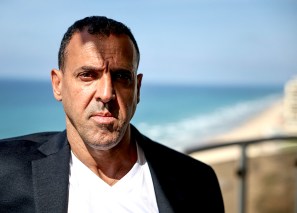Frank Dikötter’s history of Mao’s great famine took the Samuel Johnson prize last. The prize is the most prestigious non-fiction award in Britain, carrying a cheque for £20,000. It also gets an hour long special on BBC2’s The Culture Show, worth its weight in pixels to publishers of challenging and largely unmarketable books. The programme airs tonight.
The general consensus is that Dikötter is a worthy winner, who succeeded in finding new seams from that very well mined area of research on Mao’s pig-headed ignorance. As Jasper Becker wrote in his Spectator review of Dikötter’s book,
‘In a brilliant work, backed by painstaking research, Professor Frank Dikötter, has trawled through the Chinese archives to reveal some staggering new details and insights on how Mao bravely ignored everyone’s advice. He launched the forcible massed collectivisation of Chinese peasantry in 1958, a movement dubbed the Great Leap Forward, which in four years killed 45 million people. Mao did this even though his earlier rounds of collectivisation had already killed millions of peasants by seizing their food; and against the advice of Soviet leaders who well remembered how Lenin and Stalin’s collectivisation policies had killed tens of millions.
Prominent famine experts, like Justin Lin Yifu, now the chief economist at the World Bank, have excused Mao, arguing that, unlike Stalin, he wasn’t a monster who did this deliberately or
knowingly. Instead, the deaths were the result of mismanagement; peasants should have had the right to leave the communes voluntarily but the plan was basically a great idea. Even the great
American sinologist Professor John King Fairbanks considered that Mao’s greatest achievement had been to improve the lot of the Chinese peasantry.’
Dikötter’s thesis puts a new and jet-black slant on the phrase, ‘The best laid plans’. Time will tell if it becomes definitive.





Comments